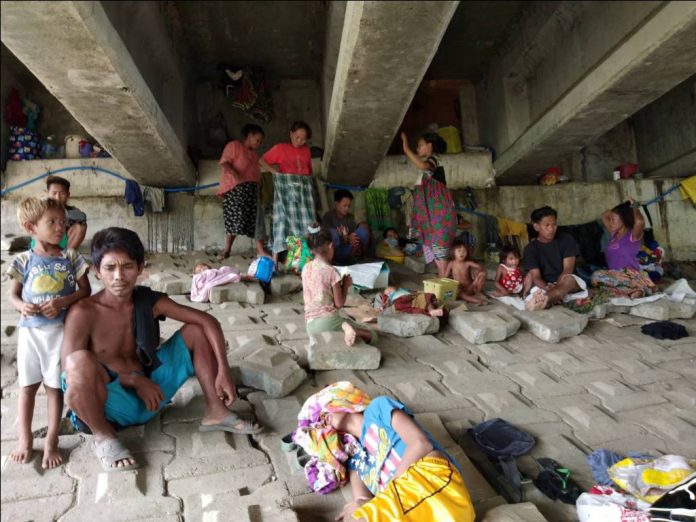
ILOILO City – Badjaos are not being contemptuously banished from this city, they are being rescued from the streets where they are exposed to danger, according to Public Safety and Transportation Management Office (PSTMO) chief Jeck Conlu.
He then asked Deputy Speaker Mujiv Hataman, “What have you done in your place to make your constituent Badjaos stay instead of travelling to other places to beg for alms for a living?”
Hataman, the last governor of the Autonomous Region in Muslim Mindanao, had criticized the city government’s plan to round up Badjaos saying liberty of movement is a basic human right “that knows no gender, ethnicity or even social standing.”
“Wala sila ginapalayas,” insisted Conlu.
In fact, he said, “During our rescue operations, ga-request sila nga buligan balik sa ila origin.”
Hataman expressed concern that the Badjaos would be treated “in a manner that strips them of their dignity” but Conlu said the congressman may not have been informed well.
The city government respects the right of the Badjaos to travel, he stressed.
But Conlu also said the Badjaos beggars’ presence could also be unhealthy, especially for jeepney passengers.
If passengers won’t give them money, the Badjaos would hit or badmouth them, said Conlu, or vandalize the vehicles.
City Regulation Ordinance 2002-400 prohibits mendicancy.
Hataman urged the city government, the Department of Social Welfare and Development, the Philippine National Police and other government agencies to provide long-term solutions that protect their dignity and their rights.
But according to Conlu, the one that should primarily address this are the local governments of the places where the Badjaos came from. They should help their people, he stressed.
“I hope Congressman Hataman understands that the problem is not here in Iloilo City,” said Conlu.
The Badjaos themselves disclosed to the PSTMO that they were being taken for granted by their local governments and this was why they were looking for other areas where they could earn a living, he added.
“I hope tagaan attention nii Congressman Hataman kun paano nila ma-improve ang life sang ila pumoluyo,” said Conlu.
Last year, the city government under then mayor Jose Espinosa III herded over 50 Badjao beggars to a ship and transported them back to Mindanao. It did the same to nearly 80 Badjaos in 2017.
“Simply sending mendicants away from its area of jurisdiction does not address the underlying problems that brought these Badjao people to Iloilo City – and other urban centers for that matter – in the first place,” said Hataman.
The return of the Badjaos to Sulu, or their relocation elsewhere, “should be voluntary,” he stressed.
“The Badjaos should agree to go back to Sulu or to relocate anywhere they are taken to. Proper coordination between Iloilo City and the receiving local government should be maintained to ensure that they arrive safe and secure,” said Hataman.
Conlu said this was done last year but “after nila ma-receive, waay na kita kabalo kon ano ang mga interventions sang ila LGUs kon ngaa nagahalalin liwat sila didto.”
Also called “sea gypsies”, many Badjaos were displaced by decades of conflict in Mindanao./PN



